11 Medicinal Plants You Should Grow
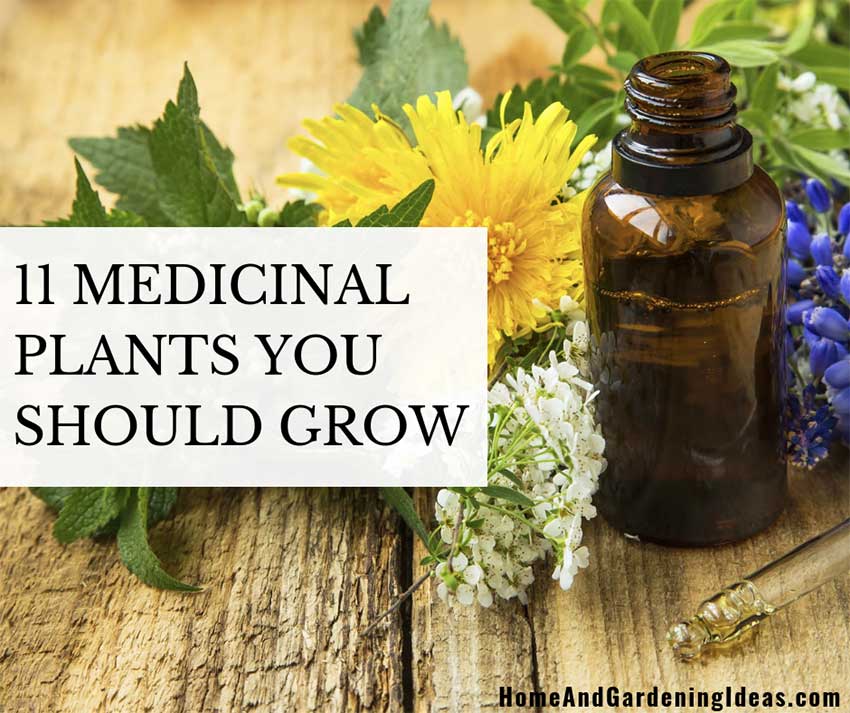
Growing your own medicinal plants in your backyard helps to reduce the number of conventional drugs you need to use. Many plants have different medicinal purposes, but you want to pick the herbs that will be most beneficial for you and your family.
The 11 Best Medicinal Plants to Grow
-
Aloe Vera

Aloe vera is a must-have herb for every garden. It’s a skin-friendly plant that requires a sunny location, and aloe vera is not frost-friendly! You may not realize, but aloe vera is a succulent that is drought resistant that requires little care. It does well in poor soil.
The inner, jelly-like pulp can be applied to minor cuts and burns, as well as dry, inflamed, or damaged skin. Aloe vera helps cure eczema, plus it has anti-inflammatory and antimicrobial benefits. You can eat the leaf pulp as well to relieve digestive problems and prevent constipation.
-
Peppermint
Peppermint has been used for thousands of years, a hybrid of spearmint and watermint. Beware when opting to grow any plant in the mint family because they like to spread aggressively throughout the garden.
Peppermint has dozens of uses. Drink peppermint tea to calm your aching stomach or relieve gas pain. Sniffing peppermint, whether its the herb or oil, can curb nausea and vomiting. It’s relief when you are suffering from motion sickness. Due to the natural cooling effect, a poultice made from the leaves and applied to the skin can relieve itching and burning.
-
Thyme

Thyme is a perennial herb that grows well in sunny locations, especially in rocky soil. The medicinal properties in thyme make it a fantastic infusion for bad breath and mouth sores. You can gargle infusions to cure laryngitis and tonsillitis. Crushed thyme leaves applied to the neck can reduce throat infections.
The best reason to grow thyme is that its a fantastic treatment for respiratory tract infections. Thyme can relieve bronchitis, chest congestion, asthma, and whooping cough. Those are a lot of reasons to grow thyme in your garden!
-
Chamomile
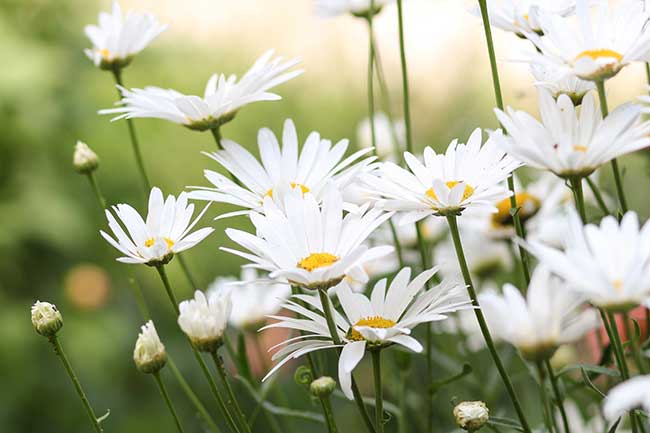
No medicinal garden is complete without chamomile flowers. Chamomile tea can soothe your troubled minds, as well as your colicky baby. Everyone knows that chamomile has multiple health benefits!
There are several types of chamomile, but Roman chamomile tends to be the one most beloved. You can use the fresh flower heads or dry them. Chamomile can cure mouth ulcers, calm irritated eczema, and relieve your upset stomach. It’s no wonder why its one of the best medicinal herbs to grow.
-
Rosemary
Rosemary, believe it or not, belongs to the mint family, and it’s been used as a medicinal plant for centuries. In most circumstances, people use it for general health and wellbeing, but it does fix specific problems.
This herb is known as the herb of remembrance, and many claim that it enhances memory. It has been shown to improve cognitive function and reduce brain aging.
-
Lavender
Lavender is known for its delightful fragrance and therapeutic benefits! Smelling its fragrance can help relieve headaches and depression. Try adding a few handfuls of lavender flowers to your bathwater, or you can place the flowers in a pouch to place under your pillow for restful sleep.
Lavender has antiseptic and antibacterial properties, so you can use it over minor cuts and injuries. Use it as a face wash to heal your damaged skin.
-
Sage
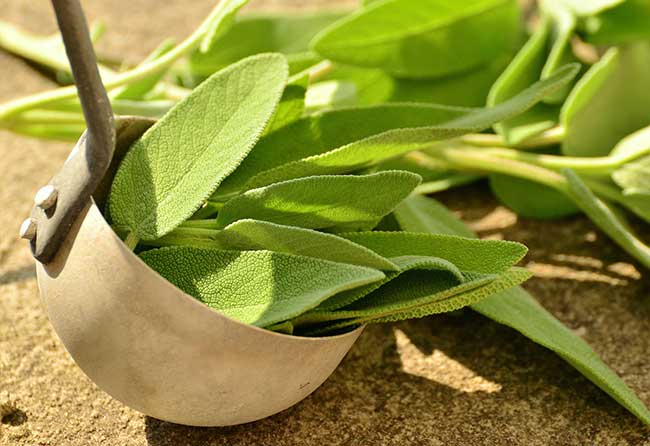
Sage has a long history of being used as a medicinal herb. This plant with the elongated grey-green leaves. You can use sage to improve appetites and reduce gas pains.
For women, sage is said to help regulate hormones, reducing any symptoms associated with premenstrual syndrome and menopause. An infusion of sage can relieve your respiratory issues, such as asthma. Sage has neuroprotective properties that help to treat depression and dementia.
-
Echinacea
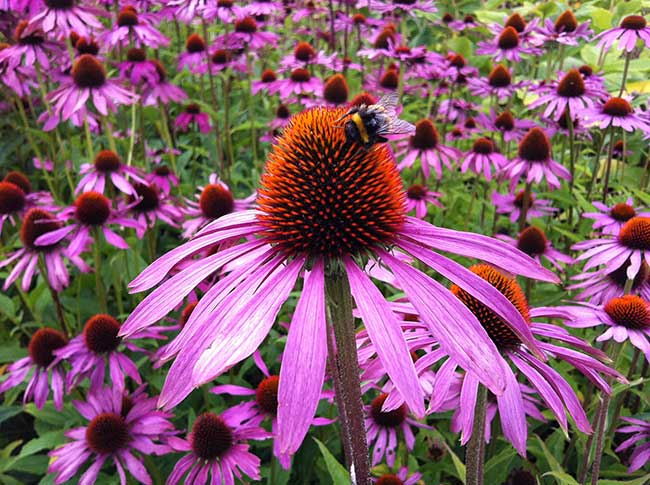
Echinacea has long been known as one of the top medicinal herbs to grow in your backyard. It has an immunostimulatory action that helps your body fight bacterial and viral infections. Throughout the cold and flu season, many people take echinacea as a way to boost the immune system to fight off illnesses.
Native Americans used echinacea as a treatment for wounds, insect bites, burns, and even snake bites. The properties make it a versatile and useful herb, but it’s most known for its remedy during cold and flu season.
-
Calendula – Pot Marigold
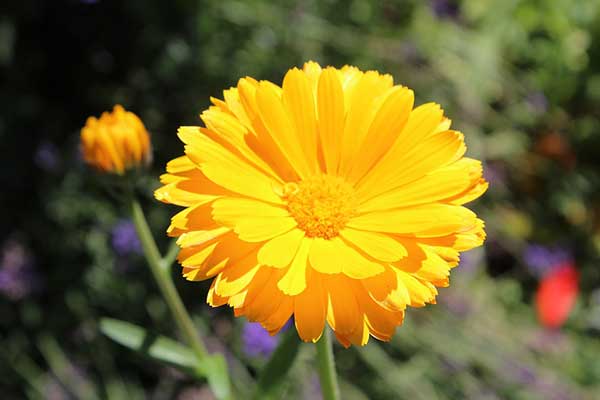
Calendula is one of the most beloved medicinal herbs, with beautiful, golden flowers. The petals are edible, and the whole flower offers medicinal uses. You can create topical ointments, salves, and ointments. It’s a fantastic option for diaper rash ointments as well!
If you like herbs that are versatile, calendula flowers are edible, so you can add them to cakes, soups, and salads. Add the flowers to oils for healing wounds, rashes, burns, and dry skin. You can use the flowers in teas, tinctures, and broths. Calendula has anti-fungal, anti-bacterial, lymphagogue, and digestive anti-inflammatory properties.
This plant prefers full sun and average garden soil. You can grow it from seed – direct sow or start in pots. They are somewhat cold tolerant, but not much! It is a great pick for a container plant.
-
Motherwort
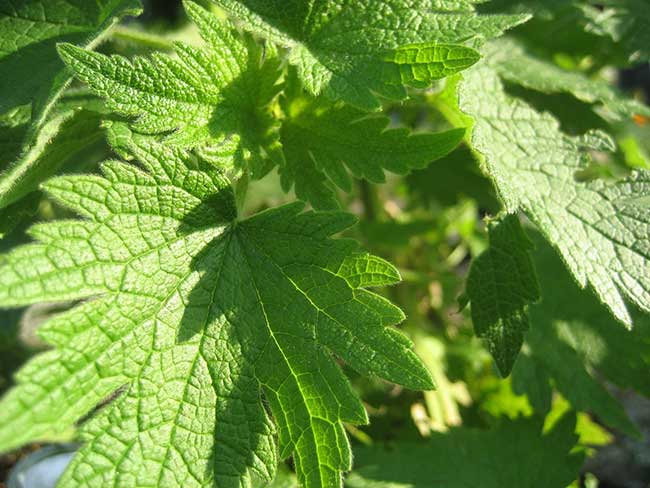
If you want an easy herb to grow, motherwort is highly recommended. It is a fantastic remedy for anxiety and stress if taken as a tincture or tea. Use it to treat headaches, menstrual cramps, muscle sprains, and aches. If you suffer from hot flashes and irritability, motherwort will be your friend. It also can help to strengthen contractions during childbirth. Lastly, it helps mothers by softening the edge brought on by sleep deprivation.
Broadleaf Plantain
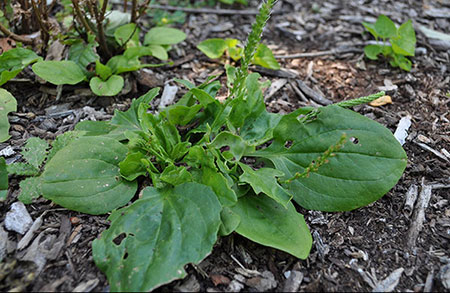
Chances are you have this herb on your property without planting it! Plantain is considered a weed, but it has several medicinal properties, including anti-inflammatory and wound healing. You can apply mashed, fresh leaves to wounds, insect bites, skin sores. It even will help to relieve the pain associated with skin wounds and promote healing.
Another way to use plantain is a tea created from fresh leaves to help control diarrhea. Fresh plantain leaves also are said to treat gout.
 Home and Gardening Ideas At home and Gardening ideas we believe inspiring readers about homesteading, self sufficiency
Home and Gardening Ideas At home and Gardening ideas we believe inspiring readers about homesteading, self sufficiency








